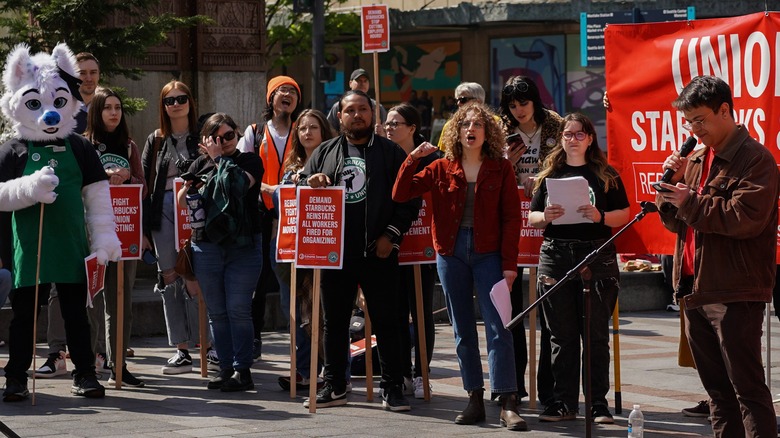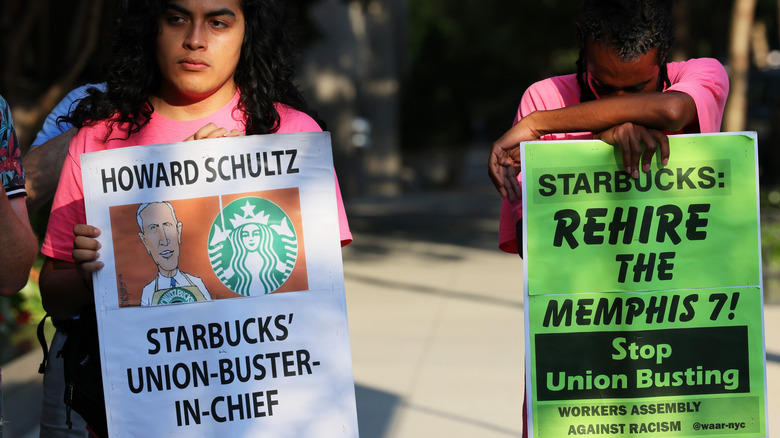Howard Schultz Doesn't Believe Starbucks Has A Union Problem
Starting the day at Starbucks is a comforting routine for many folks. The coffee chain's extensive menu allows you to create the perfect order, which can range from a frill-free cup of classic java to the vibrant tropical coconut milk Pink Dragon drink.
Starbucks has been on a meteoric trajectory since its origins in the 80s, and currently, there are just under 16,000 Starbucks locations in the country. The convenience and consistency of the chain have even begun to erode the relationship that consumers have with their local coffee shops. A Premise survey revealed that a sizable majority of coffee drinkers preferred ordering from Starbucks in the morning as opposed to stopping by an independent spot. They largely cited the ease with which they could get their hands around a mug of the mega-franchise's brew.
Starbucks' success has not come without a fair share of challenges, though. Recently, the franchise has come under fire for a number of labor-related issues. However, the company's CEO doesn't believe that unionization is the best course of action for its increasingly agitated employees.
CEO Schultz suggests that unions are a bad solution to a real problem
Howard Schultz only re-involved himself with Starbucks a few years ago, shortly after the first Starbucks location in the country voted to unionize. At the time, Schultz publicly delivered a message to the team of the Buffalo franchise, wherein he implored them to reconsider the need for collective action while referring to his employees as partners. Starbucks employees aren't technically baristas, as a year of service with the company will earn employees a stake in the company, making them partners.
More recently, in an interview with CNN's Poppy Harlow, Schultz once again expressed his opposition to the fact that locations of his coffee chain were beginning to unionize. In his opinion, the union efforts are not the result of his employee's problems with the company, but rather the natural result of a workforce that is increasingly disaffected on a social and economic level.
Whether or not Schultz is correct in pointing out that the union efforts are spurred by the economic considerations of a company's labor force, it seems that Starbucks, despite what Schultz says, has a union problem. Only a few months ago, Starbucks was caught union busting while on trial for another anti-union crime that the company had already committed. And in November of 2022, over 2,000 Starbucks employees went on a one-day strike to shine a light on the chain's relentless union busting.

